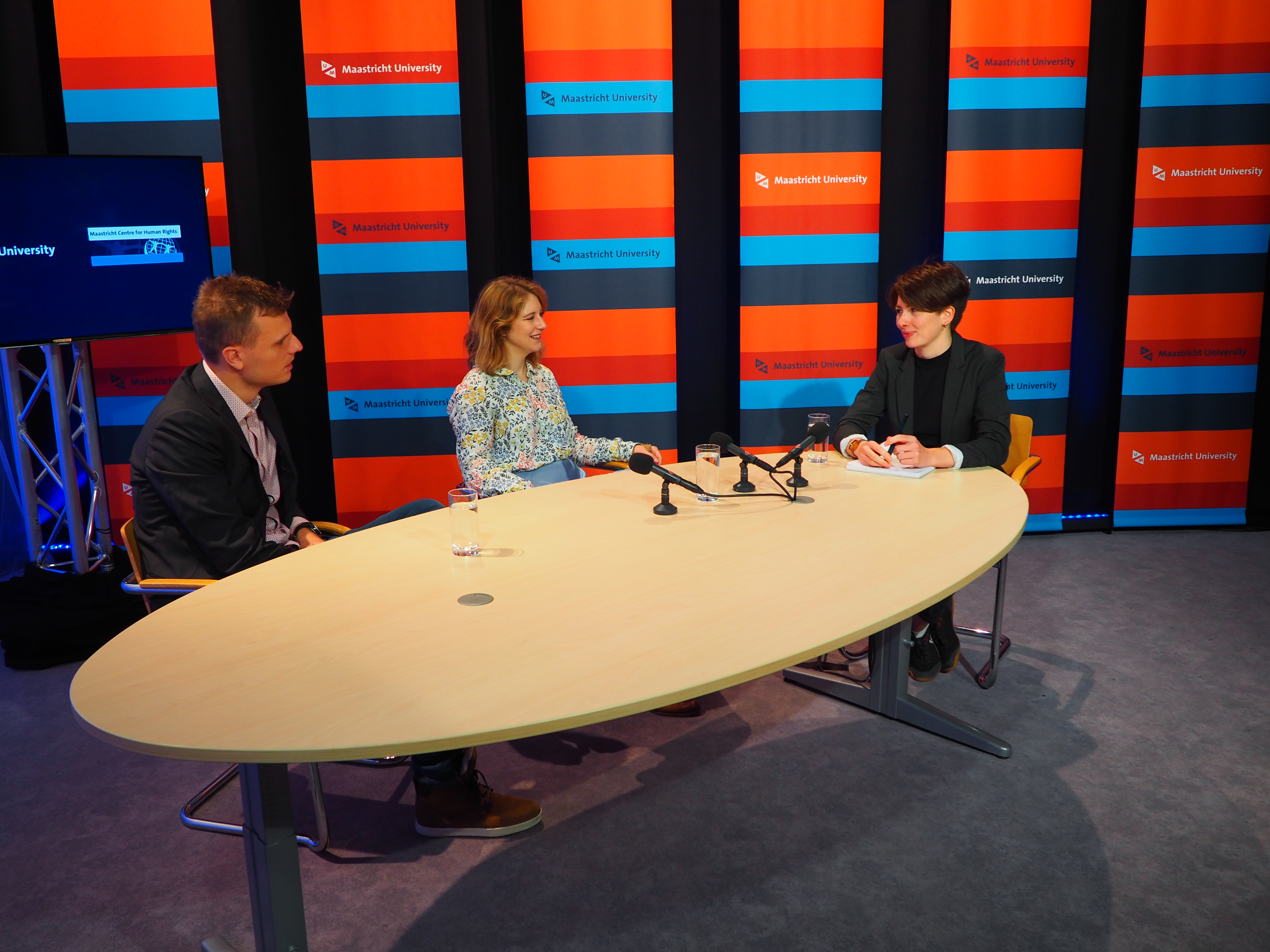Let's talk human rights
Human rights issues affect us all
But sometimes there can be an unfortunate disconnect between the human rights research that goes on in universities, and the rest of the world. Let’s Talk Human Rights is a video and podcast series which aims to bridge that gap. We interview human rights experts at one of the primary hubs of human rights research in the Netherlands, the Maastricht Centre for Human Rights, in order to open a window to show what is actually happening in human rights research today. We discuss pressing issues, from human rights and social media to the rights of disabled persons. We also talk to the researchers about themselves, their projects, and their research journey. Focusing mainly on early career researchers, we cast a light not only on human rights law and how it works, but also on what it means to be a human rights researcher.
You can find our episode on:
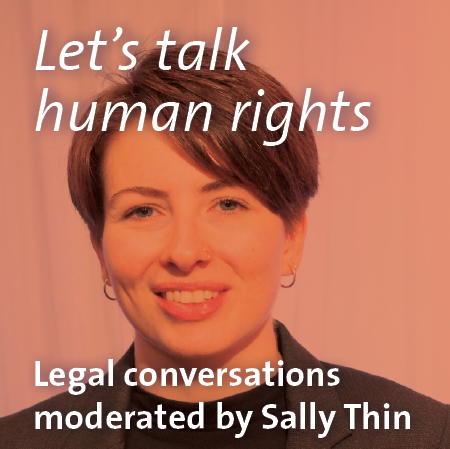

Sarah and Steven
We sit down for the first edition of Let’s Talk Human Rights to discuss non-state actors and how they can protect – and infringe – human rights. Usually when we talk about human rights violations, we think of the typical relationship between an individual and their government, or the state. But what about when someone suffers abuse at the hands of an entity that isn’t a (recognised) state? Between Sarah McGibbon’s research spanning ISIS, South Sudan, and Taiwan, and Steven van de Put’s work on UN accountability for human rights abuses, we have lots of hot topics to dip into in this episode!
Tune in via:
- YouTube
- Spotify
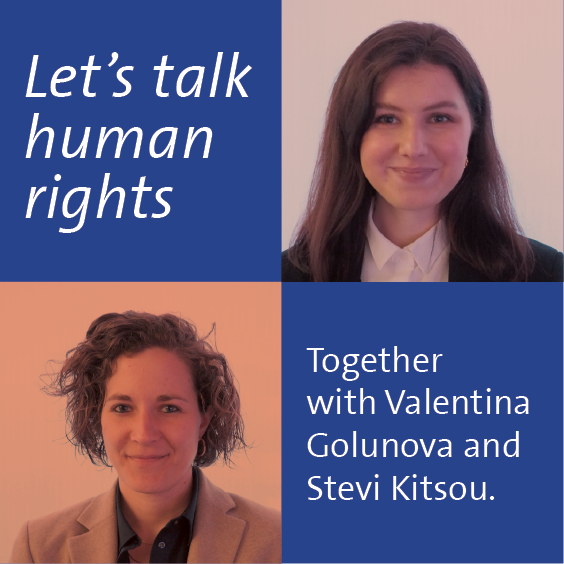
Valentina and Stevi
Almost all of us use social media, whether that’s Facebook, Twitter, Instagram, or other platforms. Many of us are dependent upon these platforms for work, for our social life, and for keeping in touch with what’s going on in the world. But we all know that there is, or can be, a dark side to what happens on the internet. Hate speech and other offensive content are rarely far away from the news. How can we regulate the use of such platforms so as to protect all our human rights, while still respecting the right to freedom of expression? And whose responsibility is this? In this episode we discuss these tricky and complex issues with two experts on the topic: Stevi Kitsou and Valentina Golunova.
Tune in via:
YouTube
Spotify
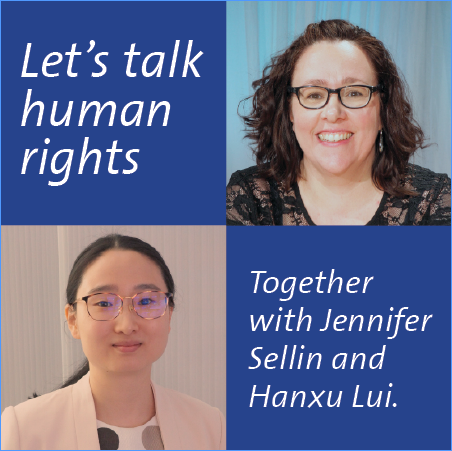
Jennifer and Hanxu
Many people across the world have fought long and hard to have their rights recognised, and the right to health and the rights of disabled persons are certainly no exception. But what does it mean to take a human-rights-based approach to health or to disability, and why does this matter? How can we ensure that these rights are effectively protected, and that the communities who are most affected are properly represented? Join us in discussion with Jennifer Sellin and Liu Hanxu to delve into these questions and more, in this edition of Let's Talk Human Rights all about the right to health and the rights of disabled persons.
Tune in via:
YouTube
Spotify
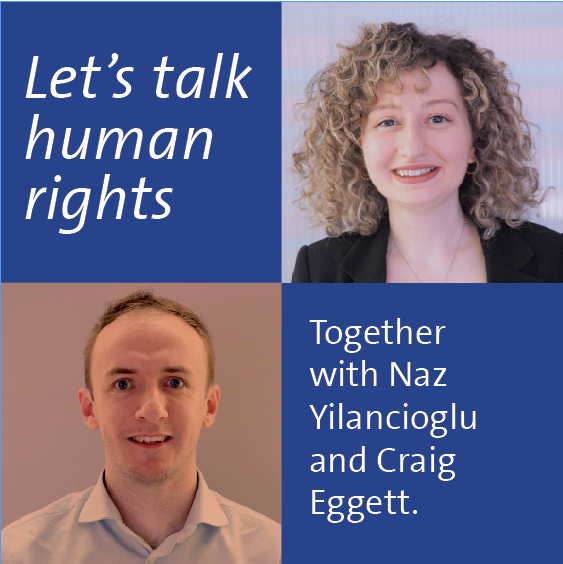
Naz and Craig
We’ve talked a lot about different human rights and how they work, but no human right is effective if it is not enforced. And where are rights often enforced? In courts. In this episode, we bring together Naz Yılancıoğlu and Craig Eggett, both experts on different international courts and their enforcement mechanisms, to talk about the role of international courts and the implementation of human rights law.
Tune in via:
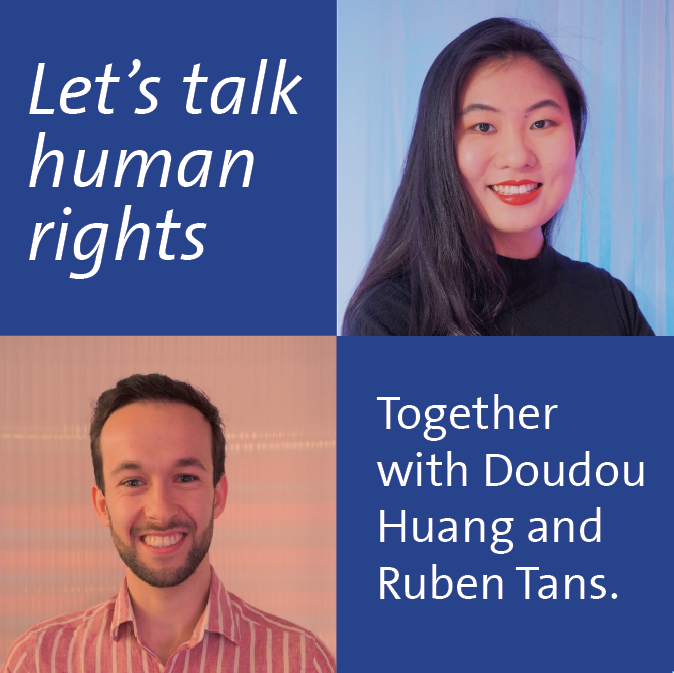
Doudou and Ruben
In this edition of Let’s Talk Human Rights we take a step away from human rights research and take a brief look at a particular form of human rights education, namely: moot courts. Moot courts allow students to experience human rights and other forms of law in action, by pleading a case before a (fictional) court and acting as legal representatives for (fictional) parties to a case. How do these moot courts work, what are they like, and what are the benefits? Join us to find out more.
Tune in via:
YouTube
Spotify
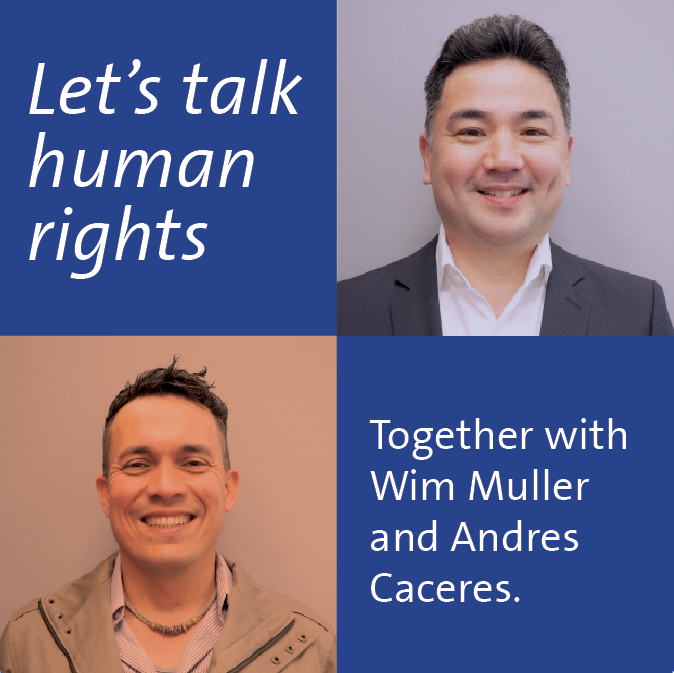
Wim and Andres
The stated aim of international humanitarian law is to protect human dignity in times of war and conflict. Whether or not it fulfils this lofty goal is up for debate, especially when we consider the difficulties of applying decades-old legal instruments to the constantly evolving nature of modern warfare. In this episode, the final episode of the series, we talk to Wim Muller and Andres Caceres, both experts on the law of armed conflict, to discuss the challenges of protecting humanity in modern conflicts.
Tune in via:
YouTube
Spotify
